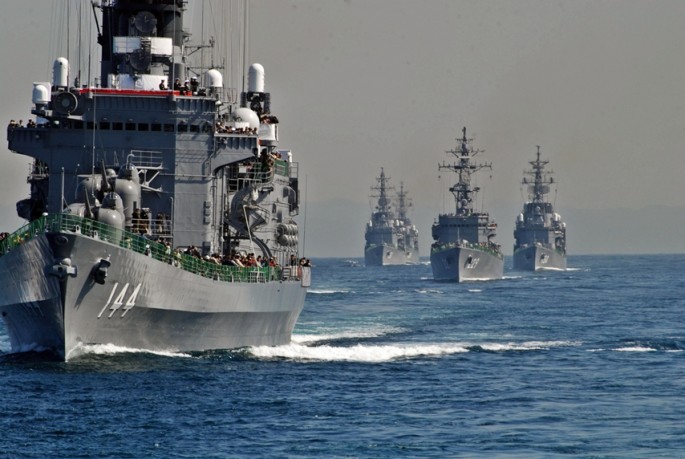The People's Daily, the official newspaper of the Communist Party of China, angrily blasted Japan's plan to begin naval patrols of the South China Sea, claiming it was "aimed to instigate tension and viciously disrupt regional stability."
It also said "the so-called arbitration unilaterally initiated by the Philippines was illegal and void from the very beginning because it seriously violated international laws and the usual practice of international arbitration."
While the paper recognized Japan as an economic power, it derided Japan's military capability. It pointed out Japan's military aggressiveness was only being fueled by the presence of the United States and its armed forces in Asia. It also said Japan was an insignificant player in international diplomacy.
Japan set a goal in the early 1990s of becoming a big country politically, "but years later they realized that they really 'have nothing much to say' on the international stage," said the People's Daily.
"As the US launched the Asia Pacific Rebalancing Strategy, Japan's dream of becoming a political and military big country was ignited again."
It said the U.S. "Pivot to East Asia" launched by President Barack Obama in 2011 revived Japan's dream of reviving its military power, and gave Japan "the green light to challenge the post-WWII international order."
China owns Japan's Senkaku Islands, the newspaper claims, since these islands (which the Chinese refer to as Diaoyu Dao) "have been China's inherent territory since ancient times, which is endorsed by a spate of documents with international authority." It is only natural for China to resolutely defend its territorial sovereignty.
Japan will move more towards confronting China in the South China Sea rather than in the East China Sea closer to home by announcing its navy will conduct more patrols in the disputed sea with the U.S. Navy and the navies of its regional allies.
Last week, Japan's Minister of Defense Tomomi Inada said Japan will increase its military presence in the South China Sea by launching a series of what it termed "training patrols" to support the U.S. and its Asian allies, especially Vietnam and the Philippines.
The patrols will be similar in nature to the "Freedom-of-Navigation" operations regularly conducted in the South China Sea by U.S. Navy warships. China has refused to ratchet down tensions despite losing an arbitration case to the Philippines last July 12.
These training patrols planned by the Japan Maritime Self-Defense Force will also see the participation of warships from the Republic of Korea Navy, said Inada.
Japan will conduct bilateral and multilateral exercises with regional navies such as the Vietnam People's Navy and the Philippine Navy despite confusing signals emanating from Manila because of the erratic foreign policy of volatile Philippine president Rodrigo Duterte. It will also engage in capacity building with these countries.
Inada said Japan remains concerned about China's refusal to abandon its claim to own most of the South China Sea.



























